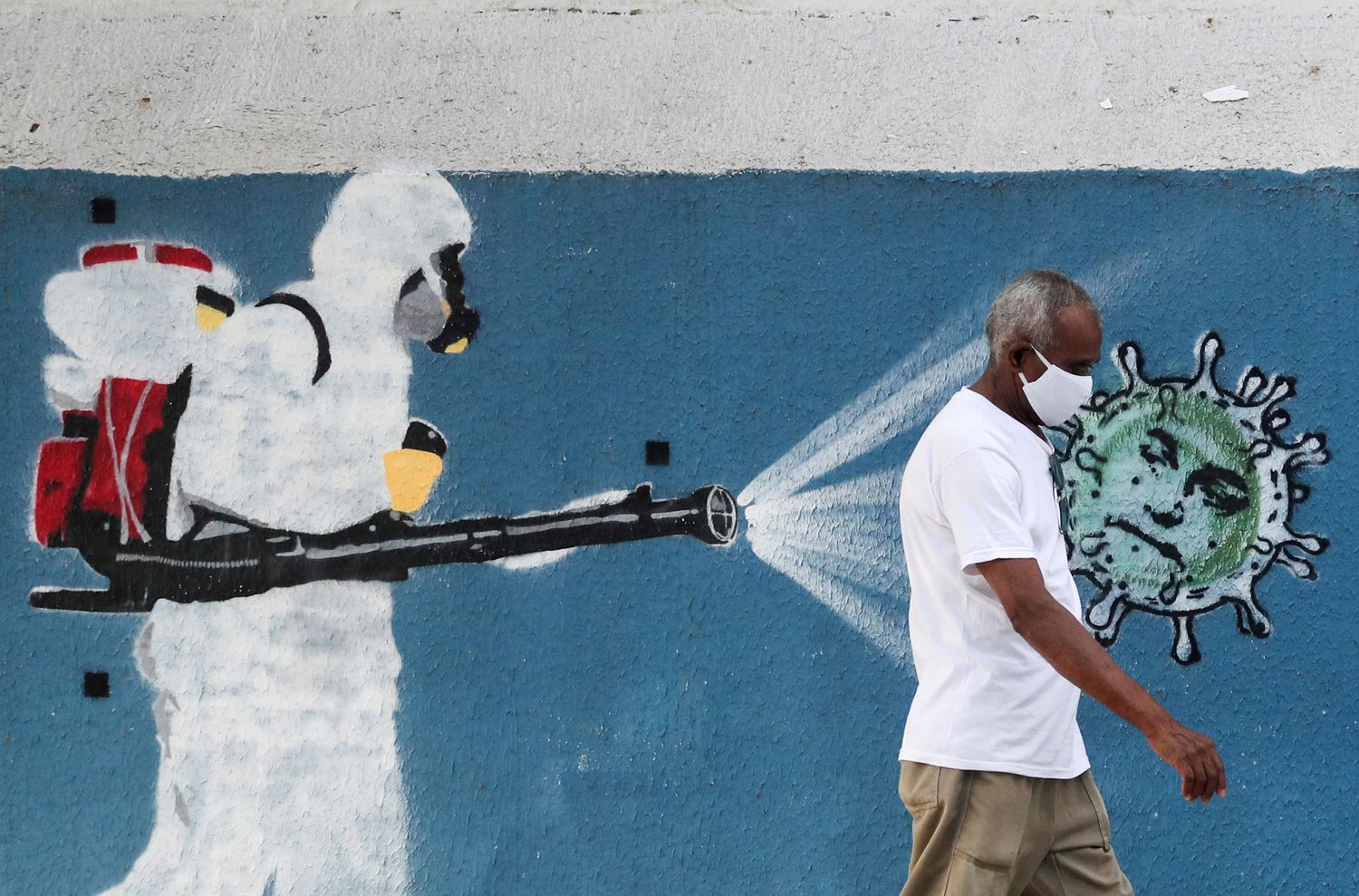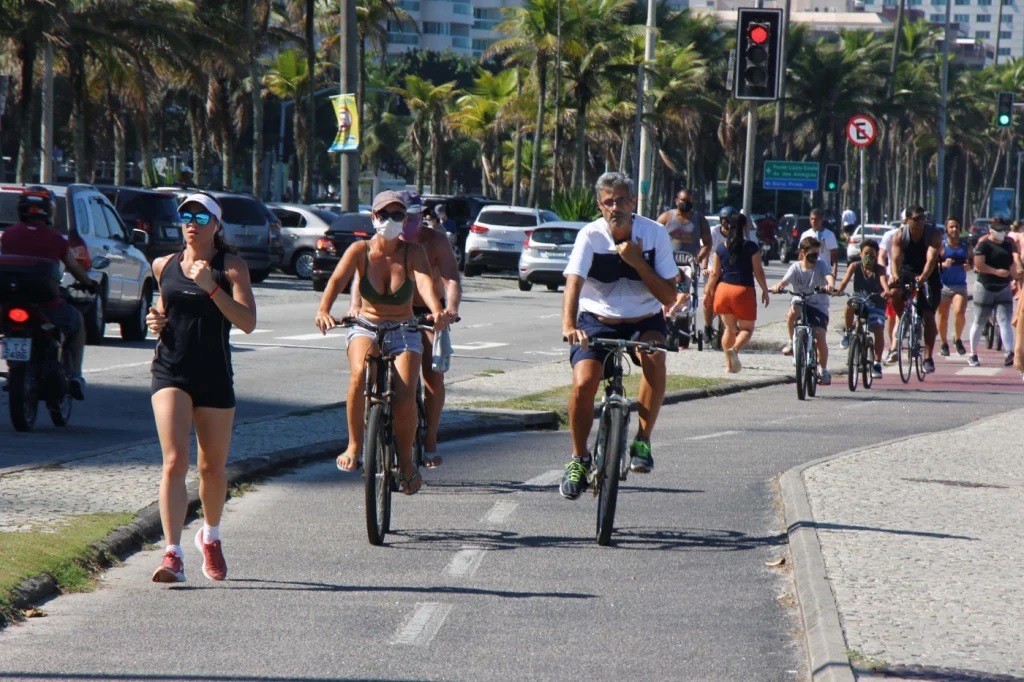RIO DE JANEIRO, BRAZIL – The fight against the coronavirus pandemic in Rio de Janeiro has become the target of widespread criticism. Two weeks ago, with no indication that cases would be under control, businesses, churches, and sports and leisure areas were reopened, based on criteria that collide with scientific evidence.

The hospital structure for treating the infected has become a bleak picture of the state health system, with hospitals under investigation for fraud in contracts with suppliers that have even sent people to prison. Part of the outsourced professionals in the municipal and state health care networks, operating on the front lines, are not getting paid.
Amid the chaos, the state has again reported a growing number of cases of the disease after relaxing, two weeks ago, quarantine measures designed to fight Covid-19. It has already exceeded 111,000 infections – half as many as whole countries such as Italy and Spain, the former epicenters of the disease – and nearly 10,000 deaths.
The contagion rate stands at 1.48, according to the covid meter, a tool developed by researchers at the Federal University of Rio de Janeiro (UFRJ) to gauge the disease’s transmissibility. According to epidemiologists at UFRJ, economic and leisure activities should be restarted only when the rate drops below 1, that is, when an individual infects less than one other person and, thus, the exponential impact of the contagion is more reduced. The opening occurred before this was ever achieved.
Governor Wilson Witzel’s project to set up field hospitals also failed. Of the seven planned, only the Maracanã and São Gonçalo hospitals were opened. The others are still overdue. The São Gonçalo hospital was inaugurated only on June 18th, with only part of the planned beds.
The governor became the target of impeachment proceedings due to suspected fraud in the purchase of ventilators for field hospitals.
The Maracanã Field Hospital was the first to be inaugurated on May 9th. It became a symbol of the chaos in Rio de Janeiro’s healthcare system. Next to the famous soccer stadium, it has a high rotation of doctors, physiotherapists, and nurses. It also lacks drugs, equipment, and safety materials and has degraded and broken ventilators.
“When I tried to connect a patient to the ventilator, who’d come in by ambulance, the machine froze. We grabbed another machine with the same problem and the next one too. There were five broken ventilators. We managed to connect him to the sixth machine. This patient survived on that shift, but he died later. I can’t say if it was because of this event or due to the patient’s complexity,” said an intensive care physiotherapist who works in the unit.
He withstands the hospital’s substandard conditions since its inauguration, despite his overdue salary and having already rested in his own car due to lack of places available at the specific location.
Another problem at the hospital is the shortage of experienced doctors. “On my first duty, on a Sunday night, the team doctor had graduated on Wednesday. She had graduated days earlier to work in an intensive care unit for a new and highly complex disease. She was holding up well. The problem was that the team that day was comprised of ten doctors and the ten had only graduated that Wednesday. There was no more experienced chief physician,” he reported.
A resident anesthesiologist from a public hospital in the city worked a 24-hour shift at the Maracanã facility in late May. She never returned. She worked on the rapid response team and intubated critically ill patients. Like the physiotherapist, she also slept in her own car.
“What struck me most was the shortage of drugs and materials to aid intubation. If I got a difficult airway situation, it would be virtually impossible to intubate the patient. There was no laryngoscope, no better laryngoscope blade, no guide. We were totally unprepared for a difficult airway, and I hoped I wouldn’t get a situation like that in my 24 hours there,” he said.
The doctor reported lack of drugs such as a neuromuscular blocker, required for intubation, and adrenaline, used in cardiac arrest cases.
She stressed the shortage of experienced doctors to guide the team in emergency situations and the lack of training for the treatment of Covid-19. “After a few hours there, I was sure I wouldn’t come back. We were not taught to cure everyone or make everyone live forever, but knowing that we are not able to help or use all of our resources because basic things are lacking and we see people die faster than they should or otherwise worsen, is uncomfortable”.
Wilen Heil e Silva, president of the Regional Physiotherapy Council of Rio de Janeiro (CREFITO), said he had received complaints about the use of incompatible ventilators for Covid-19 because they were contaminating the environment with the virus. There was also an abrupt recall of 30 new ventilators, taken to the São Gonçalo field hospital. The CREFITO carried out two inspections in the hospital facility. It found a room reserved for degraded ventilators.
“We found a very precarious situation there. There’s a shortage of drugs, ventilators, equipment,” he said. The council was forced to intervene to regulate the workload of physiotherapists and criticized the salary under the category floor. After the inspections, the CREFITO sent a report on the field hospital’s conditions to the Rio de Janeiro State Prosecutor’s Office.
Following complaints of irregularities in the purchase of equipment, the government of Rio de Janeiro dismissed the company hired to manage seven field hospital facilities and announced that it would administer them directly through the State Health Foundation. The Health Secretariat is now into its third chief since the start of the pandemic.
Fernando Ferry, the last to leave office after a month in the post, left due to pressure to maintain the field hospitals. A few days earlier, the Secretariat published a report recommending the closing of hospitals. The state, struggling with severe fiscal difficulties, would pay a high price for the seven hospitals, about R$900 million in total.
The field hospitals’ occupancy rate has dropped, but UFRJ scientists expect it to increase after the flexibility measures.

Masks around the neck
As the crisis in the state deepens, many residents of Rio’s metropolitan area break quarantine by crowding on beaches, in bars, parks, and shopping malls. The reopening of activities served as a false indication that the pandemic was now under control. The street flow increased significantly after the relaxation measures were announced.
The wearing of masks is not observed. It is very common to find people on the streets with no masks or wearing them incorrectly, around the neck, or with their nose exposed. The problem occurs in all social classes. It occurs in all parts of the metropolitan region: on beaches in the south zone such as Ipanema, Leblon, and Copacabana; in favelas such as the Complexo do Alemão; and in commercial areas the city’s West Zone; and in the nearby suburbs in Baixada Fluminense.
Public transportation in the capital and the metropolitan region is crowded, with poor coordination by mayors and supervision over companies.
The mayor of Rio, Marcelo Crivella, has also authorized churches to operate, as well as street vendors and shopping malls. Last Saturday he also announced the opening of stores and street-accessible beauty salons and that the Maracanã soccer matches will be held with public attendance as of July 10th. Popular shopping streets known for crowding consumers are open, such as the Saara in downtown Rio, as well as the Calçadão and Mercadão de Madureira markets.
“We have never been able to isolate properly. One of the reasons is structural, people live and work in inadequate conditions. And there is a political reason. There isn’t and never has been clear advice on how to isolate, how to wear the mask, how to wash your hands. There is no official publicity about that. Instead, public authorities always set the wrong example. It’s very difficult,” says UFRJ Public Health physician Ligia Bahia.
“In addition to failing social isolation, which has always been sloppy, we also failed to wear masks or use sanitizer gel. Several countries have made soap and water available in public areas for people to wash their hands,” she adds.
By Monday, the state of Rio de Janeiro counted 111,883 confirmed cases and 9,848 deaths by Covid-19, of which 6,417 were in the capital, according to data from the State Health Secretariat. The state’s lethality rate stands at nine percent in relation to confirmed cases, exceeding twice the national average of 4.3 percent. In the capital, the lethality rate is even higher, 11.3 percent.
The State Health Secretariat (SES) announced that 80 state-of-the-art ventilators were provided to the facilities at the start of the intervention in the field hospitals. The portfolio also denied there was a shortage of drugs and personal protection equipment for professionals, and said the Physiotherapy and Social Assistance coordination had been replaced.
“The SES also stresses that the State Health Foundation acts as an intervenor in the execution of the services object of the IABAS (Institute of Basic and Advanced Health Care) management contract, ensuring the continuity of the units’ operation. At first, no assistance contract that impacts the operation and patient care will be discontinued,” it said in a statement.
Source: El País

